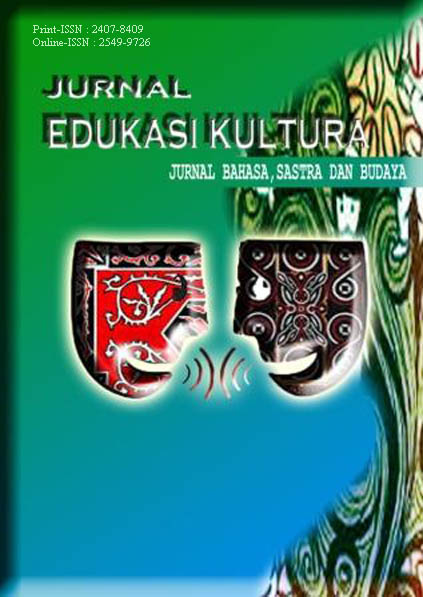Evaluasi Strategi Pembelajaran di Sekolah Dasar
Analisis Kajian pustaka
Abstract
Learning evaluation is a crucial component in education, especially at the elementary school level, as it serves to assess learning outcomes and improve the overall quality of education, covering cognitive, affective, and psychomotor aspects. However, in practice, learning evaluation in elementary schools still faces several challenges, such as the dominance of cognitive assessment, the lack of attention to affective and psychomotor domains, and insufficient teacher training in developing holistic evaluation instruments. This study aims to examine the theories and practices of learning evaluation in elementary schools through a literature review approach. The review focuses on the definition and objectives of evaluation, the types and techniques of evaluation used, the challenges faced by teachers, and best practices that can serve as references for improving learning evaluation. The method used is a descriptive-qualitative literature review with thematic analysis of literature published in the last five years (2019–2024). The results highlight the importance of developing comprehensive and contextual evaluation methods to create relevant and high-quality elementary education.References
Hasanah, I., Junita, E., Angraini, H., Sibarani, H. A., Nababan, I. N., & Manjani, N. (2024). Evaluasi Pembelajaran pada Kurikulum Merdeka di SD Dwikora Medan. Paedagogi: Jurnal Kajian Ilmu Pendidikan (e-journal), 10(1), 1-7.
Herlina, L., & Yustiana, D. (2022). Evaluasi Pembelajaran Holistik di Sekolah Dasar: Kajian Teori dan Praktik. Jurnal Pendas Indonesia, 8(3), 101–110.
Lestari, I., & Ramadhani, F. (2021). Tinjauan Evaluasi Pembelajaran Kurikulum 2013 pada Sekolah Dasar. Jurnal Pedagogi Dasar, 6(3), 145–152.
Nurwahidah. (2021). Peran Evaluasi dalam Meningkatkan Kualitas Pembelajaran di Sekolah Dasar. Jurnal Pendidikan Dasar Nusantara, 7(2), 55–62.
Pratiwi, A. D., & Sari, R. N. (2020). Kajian Pustaka dalam Penelitian Pendidikan: Urgensi dan Langkah Praktis. Jurnal Pendidikan Nusantara, 7(1), 23–30.
Rahmawati, D., & Nugroho, B. (2019). Asesmen Pembelajaran Abad 21 di SD: Studi Literatur. Jurnal Pendidikan Dasar Indonesia, 4(2), 66–74.
Sari, R. N. (2020). Analisis Kendala Guru dalam Melaksanakan Evaluasi Pembelajaran di SD. Jurnal Edukatif: Jurnal Ilmu Pendidikan, 6(1), 45–53.
Susanti, D., & Prasetyo, A. (2021). Kompetensi Guru dalam Menyusun Instrumen Evaluasi Afektif dan Psikomotorik di SD. Jurnal Pendidikan dan Konseling, 3(4), 88–96.
Syahril, A., & Hanifah, L. (2022). Analisis Tematik dalam Studi Literatur Pendidikan Dasar. Jurnal Ilmu Pendidikan Dasar, 9(2), 88–96.
Yuliana, N., & Setyawan, A. (2023). Implementasi Evaluasi Asesmen Autentik pada Pembelajaran Tematik di Sekolah Dasar. Jurnal Evaluasi Pendidikan, 11(1), 34–42.
Published
How to Cite
Issue
Section
License
Copyright (c) 2025 Tami Nopianti, Elia Monica, Novi Sesilian Pakpahan, Louis Ezra Fernando, Nurhudayah Manjani

This work is licensed under a Creative Commons Attribution 4.0 International License.

This work is licensed under a Creative Commons Attribution 4.0 International License
Authors who publish with this journal agree to the following terms:
- Authors retain copyright and grant the journal right of first publication with the work simultaneously licensed under Creative Commons Attribution 4.0 International License that allows others to share the work with an acknowledgement of the work's authorship and initial publication in this journal.
- Authors are able to enter into separate, additional contractual arrangements for the non-exclusive distribution of the journal's published version of the work (e.g., post it to an institutional repository or publish it in a book), with an acknowledgement of its initial publication in this journal.Penulis.
- Authors are permitted and encouraged to post their work online (e.g., in institutional repositories or on their website) prior to and during the submission process, as it can lead to productive exchanges, as well as earlier and greater citation of published work (Refer to The Effect of Open Access).



